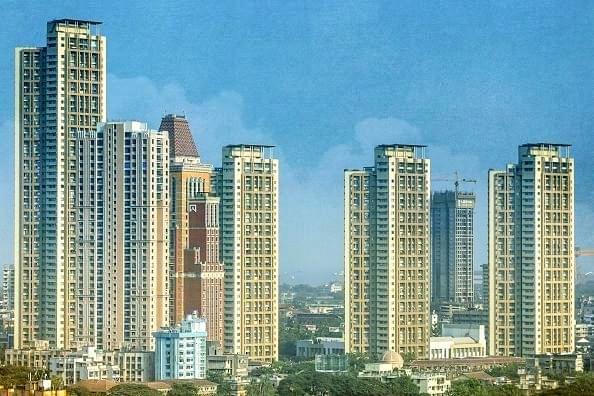Economy
Property Prices Are Headed For A Big Correction: Will Realtors See The Light?
R Jagannathan
Apr 06, 2020, 11:10 AM | Updated 11:31 AM IST
Save & read from anywhere!
Bookmark stories for easy access on any device or the Swarajya app.


Calendar 2020, even fiscal 2020-21, is likely to test the real estate market like no previous year, thanks to the Covid-19 pandemic that has brought almost all economic activity to a halt. When people are worrying about the availability of daily necessities and the possibility of losing jobs, the last thing on their minds will be the purchase of high-priced property.
This is good news for some, bad news for others. For those who already own properties, resale values could fall. For those with EMIs to pay, banks may ask for higher monthly EMIs or more lump-sum prepayments to compensate for the drop in collateral values.
For those who have invested in under-construction properties, there is the prospect of delays, and even RERA (the Real Estate Regulation Act) may not come to their rescue. Reason: regulators may well accept realtors’ pleas that the Covid situation is an extraordinary one, and delays in the handover of properties must be accepted.
On the other hand, those who are yet to buy property may find that 2020-21 will provide a buying opportunity at much reduced prices. Quite obviously, buying ready property is the best option in the current scenario. Investment in new launches may be risky unless the realtor is really well-funded.
Here’s what the experts are telling us right now.
Pankaj Kapoor, chief executive officer of realty consultancy Liases Foras, has been quoted as saying that property prices will fall by at least 10-20 per cent across geographies, and land prices by as much as 30 per cent.
Niranjan Hiranandani, one of the country’s biggest builders, has said that residential property sales are down by as much as 70-80 per cent due to the lockdown and the need for physical distancing. Consumer confidence is unlikely to return for some months now.
Property consultant Anarock reckons that both new launches and residential property sales will be down by 25-35 per cent in the year ahead.
Clearly, what we are likely to see in the coming quarters is a buyers’ market, where sellers will be keen to book or sell property with steep discounts.
This is obviously a big crisis for the real estate sector and bankers, who will both see a sharp fall in profits or even losses, the former due to discounts and higher holding costs for unsold inventory, and the latter due to a sharp fall in property values. Banks will have to either provide for higher non-performing assets in the commercial and retail sector, or stretch repayment periods for retail borrowers. Or both.
For existing buyers of under-construction property, the risk is greatest, as they would have already agreed to pre-Covid prices, which may not hold now. They face the prospect of delays in the handover of properties if their realtors are well-funded, or even losses, if builders are unable to complete projects at all.
For realtors, there is now the additional probability that those who have already booked properties by paying nominal initial amounts will now opt out even at a small loss. This is because new property prices will fall, and so will second sale prices. Those may look more attractive than continuing with existing contracts.
While some government help will surely be forthcoming for both realtors and buyers, a lot of the answers really lie within the sector itself. If they opt to take losses now, and get their 'investors' to also take haircuts, they can drop prices more sharply and revive the market faster. The market won’t revive if they want to hold on to list prices.
The choice is between a sharp correction now, or a time correction of price where sales will stagnate or even fall for several years before stabilising.
Jagannathan is former Editorial Director, Swarajya. He tweets at @TheJaggi.





